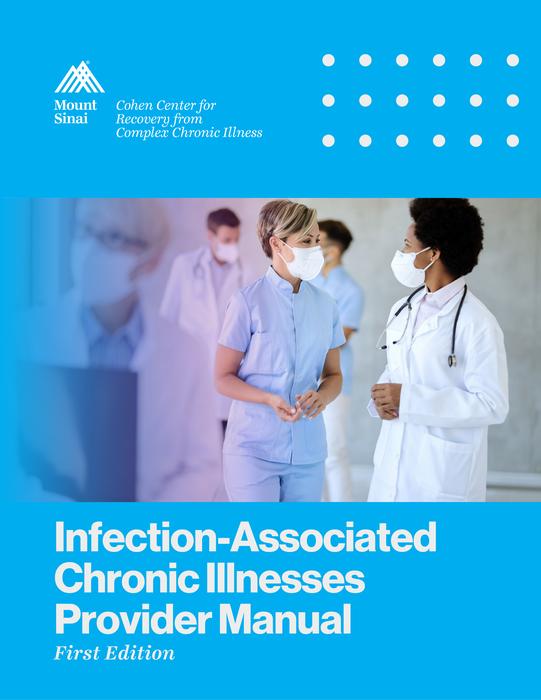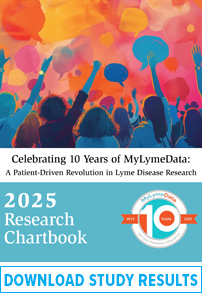Cohen Center unveils first clinical manual for persistent Lyme and other chronic illnesses

Mount Sinai Health System has launched the country’s first clinical manual for treating infection-associated chronic illnesses (IACIs).
This comprehensive guide, prepared by the Cohen Center for Recovery From Complex Chronic Illnesses, part of the Department of Rehabilitation and Human Performance, will help clinicians better diagnose and care for patients with conditions such as long COVID, long Lyme disease/Lyme+, myalgic encephalomyelitis/chronic fatigue syndrome (ME/CFS), Ehlers-Danlos syndrome, and others.
“400 million people around the world have experienced long COVID, not to mention the millions of people living with ME/CFS, chronic tick- and vector-borne illness, and other IACIs—and more people are getting sick every day,” says David Putrino, PhD, the Nash Family Director of the Cohen Center.
“Our clinic can only take on around 700 new patients a year, so clearly there’s a huge discrepancy there. Releasing this manual is a way for us not only to continue setting the standard of care, but also to help ensure that any clinician can have the tools and knowledge they need in order to adopt our practices and provide high-quality, evidence-informed practice for people with IACIs all over the world.”
The Cohen Center, launched in 2024, is a national leader in providing innovative clinical care for patients with these conditions. It leads clinical trials for promising new therapies for infection-associated complex chronic illness.
Focusing on key similarities and differences
Its research programs focus on understanding and highlighting the key similarities and differences among people living with these illnesses to help clinicians and researchers develop and test novel therapies for them.
The new manual covers extensive learnings from the Cohen Center. It walks providers through everything from diagnosis (in conditions with few or no definitive biomarkers) to long-term management strategies, multidisciplinary care models, and patient communication. The goal is to address knowledge gaps when dealing with these patient populations and help clinicians support patients.
Other highlights of the manual include sections on how to effectively care for common manifestations of IACIs such as brain fog, mast cell activation, and post-exertional malaise, as well as molecular-level understanding of the biophysical processes at work in patients’ bodies that may cause these different clinical presentations, providing a greater understanding of why certain symptoms may take place.
The manual details the infection prevention infrastructure that the Cohen Center uses, including HEPA filters and germicidal far-UV light technology. Hospitals and clinics across the United States can use this information to help minimize patients’ risk of contracting COVID-19 and other viruses during in-person clinical and research visits.
It also provides physical therapy guidelines for conditions such as Ehlers-Danlos syndrome, dysautonomia (a disorder that impacts the regulation of the body’s physiologic process including heart rate, blood pressure, and respiration), and craniocervical instability (a medical condition characterized by excessive movement between the skull and the upper cervical spine, due to weakened or damaged ligaments and connective tissues).
The manual emphasizes the potential harm that incorrectly prescribed cardiovascular exercise can cause for patients who experience post-exertional malaise.
Infection-associated chronic illnesses are widely misunderstood
“Infection-associated chronic illnesses remain disabling, costly, and widely misunderstood across much of medicine. Recent research from our team shows that even a single well-designed educational intervention can dramatically increase clinicians’ confidence, preparedness, and empathy in managing these conditions,” says Raven Baxter, PhD, Director of Science Communication at the Cohen Center.
“We hope to positively shift how the field understands and responds to infection-associated complex chronic illness and this manual is a proactive answer to calls for better training, less stigma, and more practical support for both new and experienced clinicians.”
The manual has been reviewed by more than a dozen experts both in the United States and internationally.
It can be accessed free through the Cohen Center website and project leaders will provide free online resources and CME-accredited courses and events around the country.
Click here to access the manual.
SOURCE: Mount Sinai Health System




















We invite you to comment on our Facebook page.
Visit LymeDisease.org Facebook Page